These are worksheets, powerpoints and topics from the UK
PRIMARY SCHOOL which is the equivalent of elementary school.

That's wonderful, but that's not American English. Those word problems appear to be the equivalent of using Google Translate to teach French grammar to English-speaking students. No bueno. The KISS principle needs to be applied. Maybe me and Meta Reign are on the wrong end of the bell curve, but I have a feeling we weren't the only ones in this thread to look at those problems and imitate Dr. Cosby with a

. I am going to be perfectly honest: there's no way I'd be able to assist my children with those problems as written, if they come home with that as homework and asked for guidance. Take the easiest example:
"Match the picture with the fraction that names the shaded part." It may make perfect sense in British English, which is fine... but in American English, the proper answer for all eight examples is 'N/A - not applicable'. None of those examples are shaded, according to American English. I'd raise hell if my child brought that worksheet home, because I'm American.
Someone clever might even take that worksheet as a challenge to shade in each of those graphics according to the fraction beside it. Would they really be wrong to do so, if their first language is American English? I mean, they
would be
matching the picture to the
fraction beside it which names t
he part that should be shaded, right?
I visited your webpage for primary children. Some good practice sheets, like the "4 Missing Numbers in Sequence" which is kind of neat. I like that one. It goes beyond just putting a number down and hoping it's correct, to having a child explain why they put the number down.
1..3..7..13 The rule is
I like that. That is KISS, and as a bonus I could actually help my kids with that one.
I'd need to see more of what the actual story problem was for:
though. I think I get it, but there's a much simpler way to teach that. Or maybe I'm just used to Base 10 (breaking it down by 10s so that it's 20 plus 10 then the rest, etc) making the world easier because that's how I was taught, and it's hard to break old habits when you're old.

Kind of like phonics, which is a different subject.
Mr. Hickams is a great story; the moral of his story is drive, though. Thank you for relaying it.
Young people who bring their parents to interviews probably had their parents self-invite themselves to the interviews, to be honest

But yes, that is bullshyt. As for parents doing the follow-up calls, I know why a parent would do it (and a kid would let them) but I'm glad you pointed out why it's counter-productive.
I'll also be honest: my mother would have kept all of us in the same house, with spouses and all, if she could. She didn't want to kick us out, we had to flee
 I love my mother
I love my mother, she's a goddess on earth and put up with a lot of bullshyt from a lot of outside sources, but that's how it was. If a manchild is sitting at home not contributing anything, and mama is still making meals, payments, laundry, it may be that mama wants him there. She might be afraid of being alone.



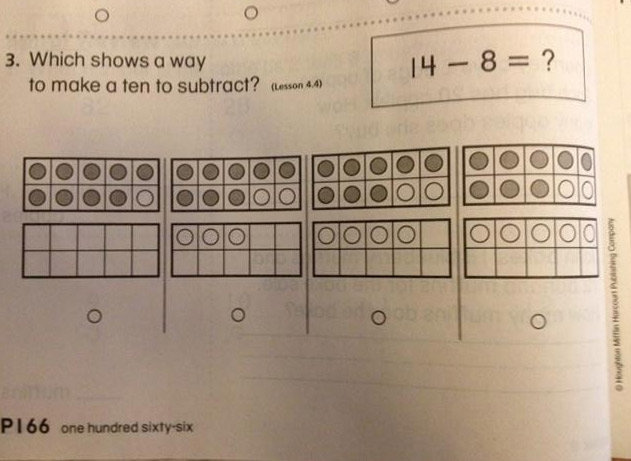

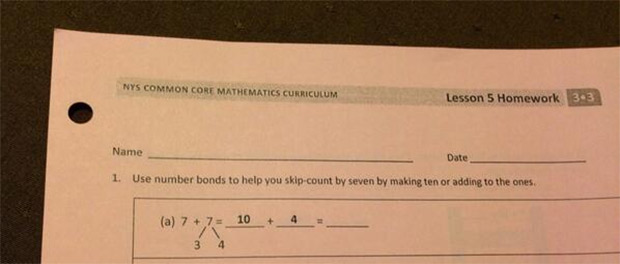
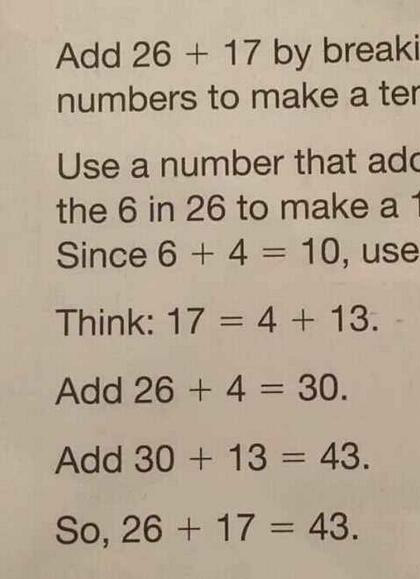
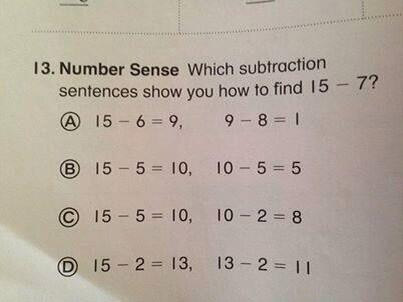
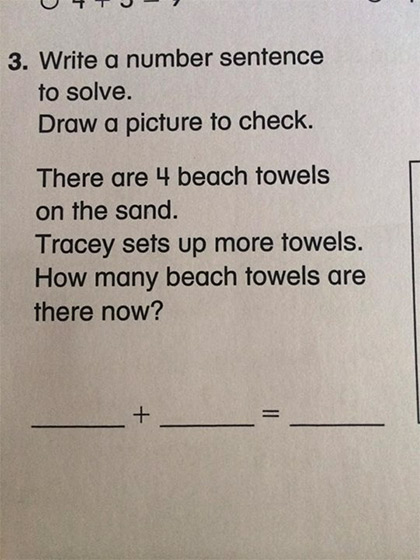
 Wtf is this? Number bonds? This is supposed to bridge the gap? The reason why other countries are doing better is because their curriculums ain't nothing to fukk with. They thrust everyone into deep waters. They're no optional AP classes that inflate your gpas. To what someone said earlier, you're as strong as your weakest link, it's true. You have dudes who are smart as fukk who took AP classes and already have a head start in freshman level classes, but then you have some remedial ass dudes trying to stay afloat. What you do then end up with is a great divide with some dudes fukking up the curve and some dudes begging for C's at the end of the semester. If they really wanna fix things, scrap AP and hire more qualified teachers that can teach a challenging curriculum to everyone not this hipster math bullshyt you have here
Wtf is this? Number bonds? This is supposed to bridge the gap? The reason why other countries are doing better is because their curriculums ain't nothing to fukk with. They thrust everyone into deep waters. They're no optional AP classes that inflate your gpas. To what someone said earlier, you're as strong as your weakest link, it's true. You have dudes who are smart as fukk who took AP classes and already have a head start in freshman level classes, but then you have some remedial ass dudes trying to stay afloat. What you do then end up with is a great divide with some dudes fukking up the curve and some dudes begging for C's at the end of the semester. If they really wanna fix things, scrap AP and hire more qualified teachers that can teach a challenging curriculum to everyone not this hipster math bullshyt you have here 




 . I am going to be perfectly honest: there's no way I'd be able to assist my children with those problems as written, if they come home with that as homework and asked for guidance. Take the easiest example:
. I am going to be perfectly honest: there's no way I'd be able to assist my children with those problems as written, if they come home with that as homework and asked for guidance. Take the easiest example: I love my mother, she's a goddess on earth and put up with a lot of bullshyt from a lot of outside sources, but that's how it was. If a manchild is sitting at home not contributing anything, and mama is still making meals, payments, laundry, it may be that mama wants him there. She might be afraid of being alone.
I love my mother, she's a goddess on earth and put up with a lot of bullshyt from a lot of outside sources, but that's how it was. If a manchild is sitting at home not contributing anything, and mama is still making meals, payments, laundry, it may be that mama wants him there. She might be afraid of being alone.  @ Dudes not understanding those simple math problems.
@ Dudes not understanding those simple math problems. 
